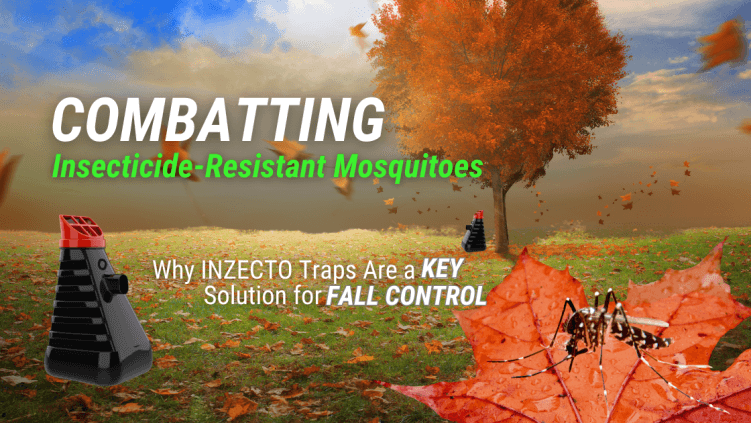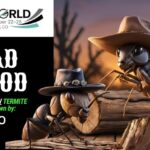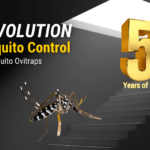Mosquito control is a persistent and evolving challenge, especially when insecticide resistance comes into play. In recent years, mosquito populations have developed resistance to common insecticides, making traditional methods like barrier sprays less effective. As we approach the fall season, the need to address resistant mosquitoes becomes even more critical, particularly to prevent them from overwintering and causing control failures in the spring.
The Growing Problem of Pyrethroid Resistance
For many years, pyrethroid-based products have been a staple in mosquito control, widely used in barrier sprays to reduce mosquito populations around residential and commercial structures. However, one of the major issues facing pest control professionals today is the rising resistance to pyrethroids. As mosquitoes adapt and become resistant, the efficacy of barrier sprays diminishes, leaving communities vulnerable to increasing mosquito-borne diseases such as West Nile Virus, Zika, and Dengue Fever.
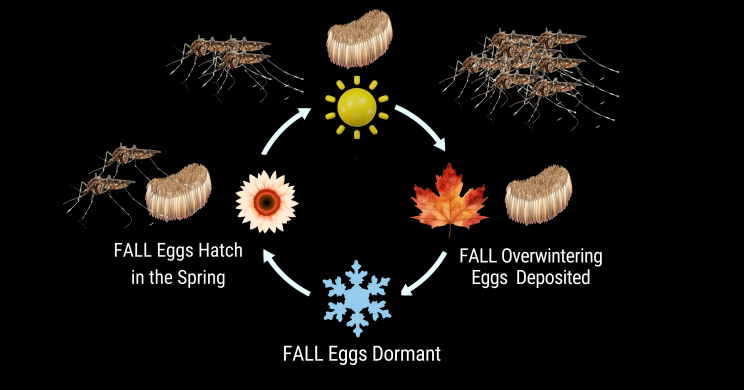
Research consistently shows that insecticide resistance in mosquitoes is often linked to pyrethroids, a key ingredient in many widely-used insecticides. This resistance is primarily due to the over-reliance on pyrethroids as the primary method of mosquito control, which has led to the development of resistant strains. One major resistance mechanism is due to mutations in the mosquito’s sodium channels, specifically knockdown resistance (kdr), which reduces the efficacy of pyrethroids by altering the mosquito’s nervous system response(BioMed Central)(MDPI).
A New Approach: Pyriproxyfen in INZECTO Mosquito Traps

Unlike pyrethroids, mosquitoes have not shown resistance to pyriproxyfen, making it a highly effective tool in areas where barrier sprays are no longer working and offering a reliable solution for targeting resistant mosquito populations.
As the weather cools and mosquito activity begins to slow down, it’s easy to overlook the importance of mosquito control. However, fall is a critical time for managing resistant mosquitoes. Those that survive into the colder months can overwinter in sheltered areas, lying dormant until warmer temperatures return. If these resistant mosquitoes are allowed to overwinter, they will emerge in the spring, potentially leading to even greater failures in control methods the following season.
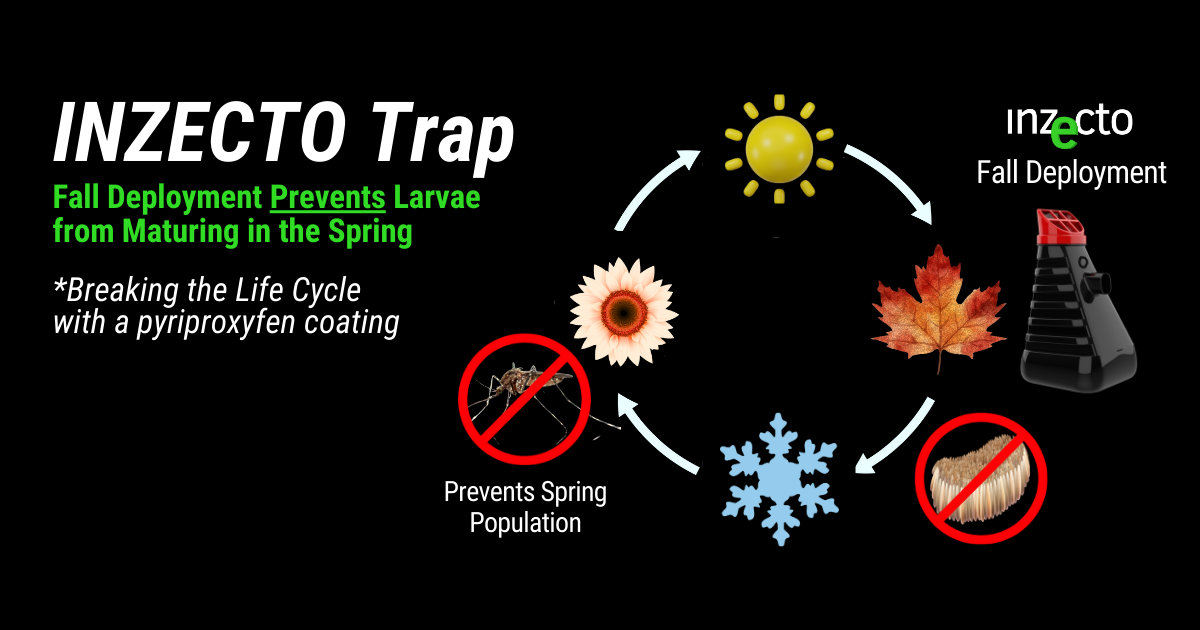
Integrated Mosquito Management: A Comprehensive Solution
- Combining traditional methods with innovative products like Inzecto traps is key to managing insecticide resistance. While barrier sprays remain useful in many situations, integrating alternative solutions that mosquitoes haven’t built resistance to is essential for long-term control.
- Integrated Mosquito Management (IMM) is the strategy to employ here. It involves using a combination of methods—source reduction, larvicides, barrier sprays, and innovative traps like INZECTO—to achieve effective, sustainable control. This holistic approach not only reduces the reliance on pyrethroids but also minimizes the chances of resistance developing further.
In the fight against insecticide-resistant mosquitoes, we must embrace new tools and strategies. INZECTO Mosquito Traps, with their use of pyriproxyfen, offer a highly effective alternative to pyrethroid-based barrier sprays, particularly in areas where resistance has rendered traditional treatments ineffective.
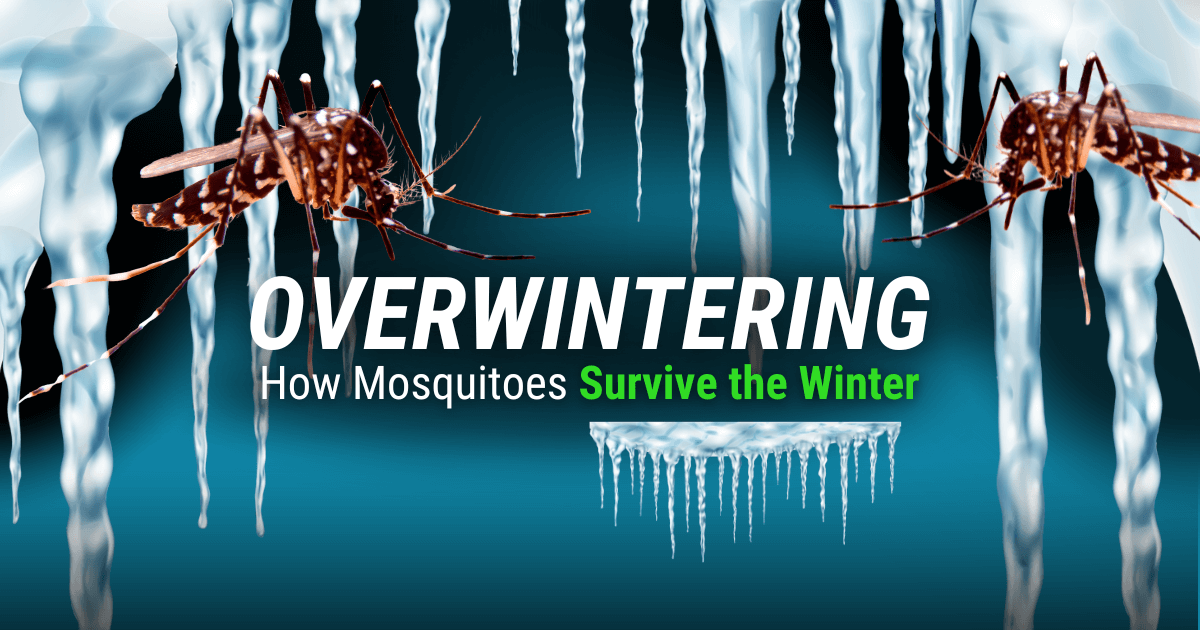
How Mosquitoes Survive the Winter: The Process of Overwintering in the Egg, Larval and Adult Stages
Mosquitoes, like many insects, have developed strategies to survive the winter months through a process called overwintering. This allows them to endure the cold and reemerge when conditions become favorable. Overwintering behavior varies by species and can involve different life stages, including eggs, larvae, pupae, and adults.
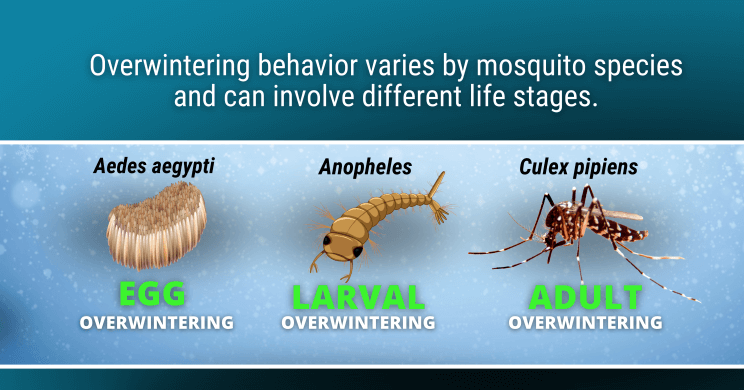
Egg Overwintering
Many mosquito species, like Aedes aegypti (the primary carrier of dengue, Zika, and chikungunya), lay eggs that are capable of withstanding freezing temperatures. Their eggs enter a state of diapause, a form of dormancy, halting development until temperatures rise. The eggs are often laid in dry areas, such as containers or tree holes, where they can remain viable for several months. Once the weather warms and water levels increase, the eggs hatch, leading to new mosquito populations in spring.
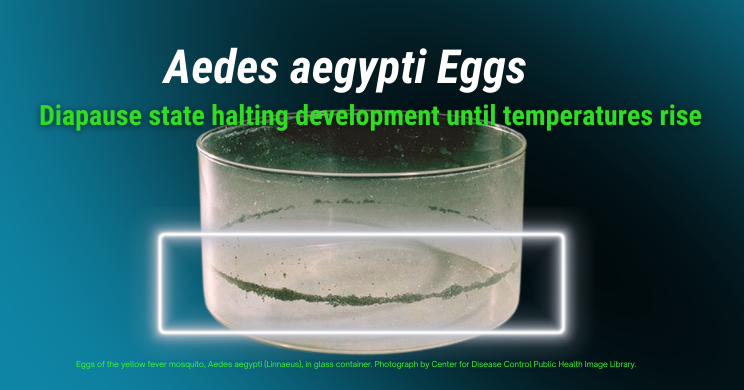
Larval Overwintering
Adult Overwintering
Certain species of mosquitoes, such as Culex pipiens (known for transmitting West Nile virus), overwinter as adults. These mosquitoes enter a state of dormancy called diapause, where they hide in protected areas like basements, sheds, or caves. During this period, their metabolic rates drop, allowing them to survive with little or no food. In spring, they emerge, often becoming one of the first active mosquitoes of the season.
Climate Change and Overwintering
Rising global temperatures have altered the overwintering patterns of mosquitoes. Warmer winters allow some mosquitoes to remain active longer or to overwinter in regions previously too cold for their survival. This contributes to the spread of mosquito-borne diseases into new areas.
Mosquitoes have adapted remarkably well to survive through harsh winters, whether through laying hardy eggs, staying as larvae, or entering diapause as adults. Understanding their overwintering habits is crucial in controlling mosquito populations and reducing the risk of disease transmission as the climate continues to change.
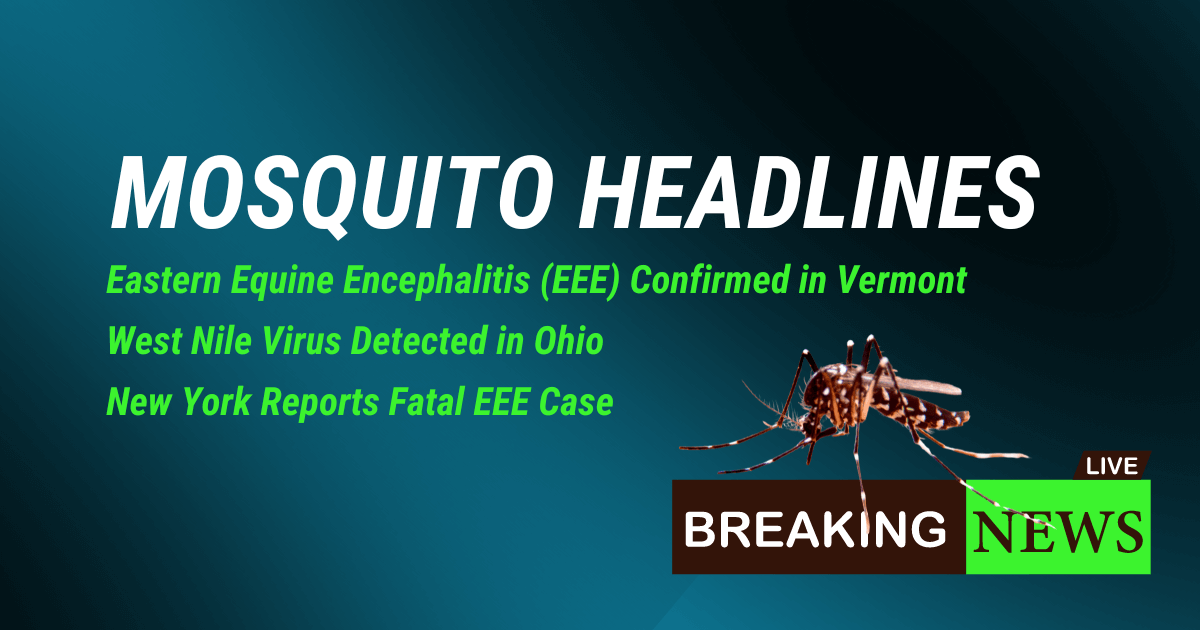
Breaking Mosquito News in the US:

LAST CHANCE FOR INZECTO'S PEAK SEASON PROMO
Promo VALID: September 1st – September 30th
*Limit One (1) Free Case Per Customer
Purchase through your Local Pest Control Distributor and Redeem your FREE Case by Emailing Proof of Purchase to: [email protected]

Book an Onsite Meeting with INZECTO at Pestworld
The INZECTO Team: Randi Lasley Enrico Paolo Levi and Dr. Phil Koehler look forward to seeing you there!

